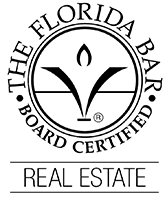Typical Florida Estate Plans
Welcome to St Petersburg estate planning lawyer James W. Martin, P.A., who practices Florida probate law and trust law.
The typical estate plan prepared for residents depends on whether the client is single or married, has children or not, and is retired or not.
Estate plan objectives for married couples often differ from those of single persons. Married persons usually name each other as beneficiary, personal representative, and successor trustee in their wills and trusts. They usually name each other as agent in their durable power of attorney and as health care surrogate and preneed guardian. Single persons usually name their parents, siblings, or friends instead.
Objectives for residents with children vary from those without children. Raising children is a serious commitment, so estate plans for persons who have children include provisions for their care and financial needs. The Pinellas County resident with children often has a will with a testamentary trust to provide for the children until they are self-supporting. A living trust can perform the same function.
Retired Pinellas residents have estate plan goals that typically focus on retirement matters. Beneficiary designations for life insurance, IRAs, 403(b)s, and other retirement vehicles must be updated. Living trusts are often created in addition to wills and other estate planning documents to plan for lifetime needs and post-death issues.
In any case, it is the needs and desires of the clients that drive their estate plans and the drafting of their estate plan documents.
This section of the website introduces typical estate plans of Pinellas County Florida residents based on these factors.
Single Person’s Estate Plan Without Children
When a Pinellas County Florida single person dies without an estate plan and without children, then his or her parents are usually the ones who are legally entitled to make health care decisions during life and inherit the estate at death. This happens even if the single person lives with another person who is more significant to them than their parents. That’s why it’s important for Pinellas County singles to have an estate plan: to name who they want as beneficiaries and as decision makers when they cannot make them. These estate plan documents are typical for single persons without children:
- Last Will and Testament: This legal document says two things — who is entitled to your assets at your death, and who will be your personal representative or executor after your death. This does not take effect until death. It can be revoked and a new will signed as many times as you want before death. A will does not avoid probate at death, but it names who you want to be your beneficiaries and handle your estate.
- Living Trust: A revocable living trust is sometimes drafted to hold assets that the Pinellas County Florida single person wants to avoid probate. The trust says that the trust assets are owned for the benefit of the single person during life and then, like a will, names the beneficiaries entitled to the trust assets at death. The trust assets avoid probate on the single person’s death because it names a successor trustee to handle the trust assets at the single person’s death.
- Durable Power of Attorney: This appoints someone to act for you during your lifetime. This document is effective immediately when signed so it should only be used if there is someone you absolutely trust to have control over your assets during your life. It can be revoked during life, and it has no effect after death.
- Living Will, Designation of Health Care Surrogate, and Durable Health Care Power of Attorney: This is the legal document that names someone you trust to make health care decisions for you if you are unable to make them yourself. It, too, can be revoked during life, and it has no effect after death.
- Declaration of Preneed Guardian: This names who you would want to be your guardian if a court ever determined you were incapacitated and unable to handle your own affairs.
- Consent to Disclose Estate Plan Documents: This document is similar to a HIPAA document, but instead of medical information it says who you want your lawyer to disclose your estate plan documents to.
Single Person’s Estate Plan With Children
Pinellas County single persons with children need to plan for their care and financial well-being in case of incapacity or death of the parent. Raising children is a serious responsibility. The single parent’s estate plan needs to include provisions for naming guardians and trustees in case of the parent’s death and for naming agents to act when necessary during life.
And when a Pinellas County Florida single person with children dies without any estate plan at all, then the single person’s estate usually passes by intestacy to the children, which creates many complications if they are minors.
And, as is the case without children, when a single person has no estate plan, it is his or her parents who are usually the ones legally entitled to act as health care surrogates if the single person is unable to make health care decisions. This happens even if the single person lives with another person who is more significant to them than their parents.
That’s why it’s important for Pinellas County singles to have an estate plan: to name who they want as beneficiaries and as decision makers for them and their children. These estate plan documents for single persons with children:
- Last Will and Testament: This legal document says two things — who is entitled to your assets at your death, and who will be your personal representative or executor after your death. This does not take effect until death. It can be revoked and a new will signed as many times as you want before death. A will does not avoid probate at death, but it names who you want to be your beneficiaries and handle your estate. When the single person has children, the will might include a testamentary trust to provide for the children until they are self-supporting, in which case it will name a trustee to hold and manage assets for the children until that time.
- Living Trust: A revocable living trust is sometimes drafted to hold assets that the Pinellas County Florida single person wants to avoid probate. The trust says that the trust assets are owned for the benefit of the single person during life and then, like a will, names the beneficiaries entitled to the trust assets at death. The trust assets avoid probate on the single person’s death because it names a successor trustee to handle the trust assets at the single person’s death. The living trust, too, might include a trust for the benefit of the single person’s children at death.
- Durable Power of Attorney: This appoints someone to act for you during your lifetime. This document is effective immediately when signed so it should only be used if there is someone you absolutely trust to have control over your assets during your life. It can be revoked during life, and it has no effect after death.
- Living Will, Designation of Health Care Surrogate, and Durable Health Care Power of Attorney: This is the legal document that names someone you trust to make health care decisions for you if you are unable to make them yourself. It, too, can be revoked during life, and it has no effect after death.
- Declaration of Preneed Guardian: This names who you would want to be your guardian if a court ever determined you were incapacitated and unable to handle your own affairs.
- Declaration of Preneed Guardian for Minor: This names who you would want to be guardian of your minor children in case of your death.
- Designation of Health Care Surrogate for Minor: This names who you would want to be health care surrogate for your minor children in case of your death.
- Consent to Disclose Estate Plan Documents: This document is similar to a HIPAA document, but instead of medical information it says who you want your lawyer to disclose your estate plan documents to.
Other Practice Areas
This page relates to one of the practice areas of St. Petersburg, Pinellas County, Florida lawyer James W. Martin. For other practice areas, click here.
Contact
If you have the need for a St. Petersburg wills, trusts, and probate attorney, you may use the contact form below or call James W. Martin directly at 727-821-0904 or email him at jim@jamesmartinpa.com for an initial consultation.
The text on this page was written by James W. Martin, Esq. and was last updated on September 14, 2024.






